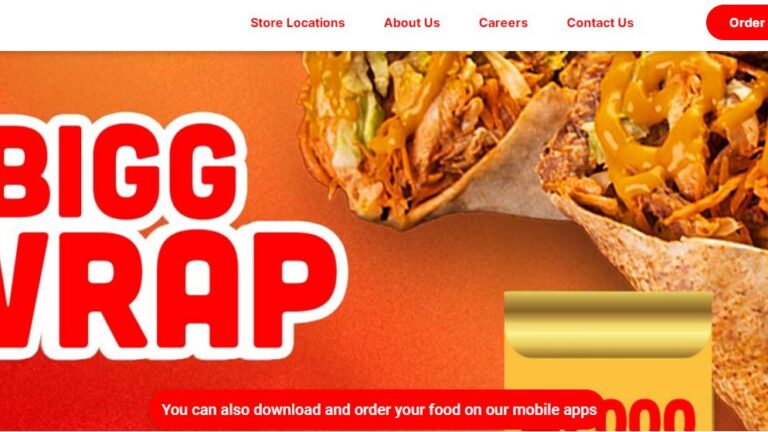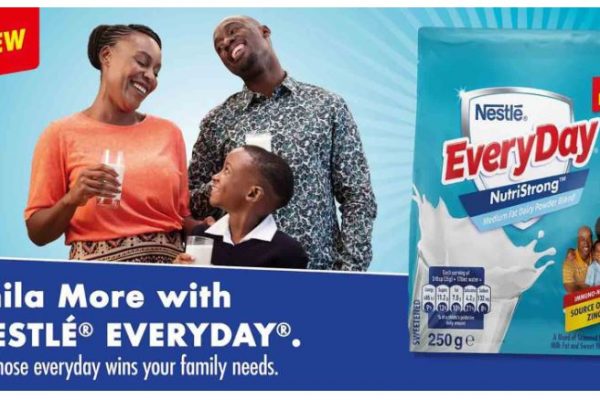By Ikem Okuhu
Nobody is talking about it, but I am sure everybody is noticing the disappearance of the ubiquitous Mr. Bigg’s franchise from the lives of Nigerians. Mr. Bigg’s is dying, starving to death by a conspiracy of attrition cooked by poor franchise management, lifestyle changes, and other issues relating to opaque bookkeeping.
Let me repeat; Mr. Biggs is dying, but the major problem is that, like the kings in some ancient African tribes. The brand is intent on being interred with the heads of as many partners as the headhunters of misery and consequential calamities would be able to harvest.
You may have gradually started to erase this hitherto powerful quick-service restaurant brand from memory. No one would blame you, but a slow and dangerous cancerous ravage like the one happening to Mr. Bigg should neither go unnoticed nor unreported.
As we speak, lawyers are having a field day in many courts across the country battling to save this brand from, not from the almost certain fate of death that faces it, but from liabilities and other demands that its partners believe should accrue them as a result of certain perceived failures and breaches of some purportedly agreed terms in the relationship.
Mr. Bigg’s was big. Being Nigeria’s oldest indigenous quick-service restaurant, it grew its outlets at the peak of its growth to about 170 restaurants located in more than 40 cities in the country. At a time, a city is considered to be worth its name and status if there is a Mr. Bigg’s restaurant in one of its high streets. Young people loved the brand; most relationships, including the ones that resulted in marriages were baked, packaged and served at a Mr. Bigg’s, and with the apparent fatal slide in the fortunes of the brand, parents who’ll in future, wish to take their children to “where it all started” will have to think of different ways of feeding their nostalgia.
There was also this little matter of focus on footfalls. It became important for the business to record greater market share vis-a-vis competition. This achieved its purpose in numbers but not in quality, as most of the restaurants soon became venues for all sorts of rendezvous, ranging from land speculators through people vending fake diesel Sales and Purchase Orders (SPOs) to those merely seeking to take refuge from the blazing sun after hours of hustling on the streets. You may visit a restaurant and find 20 people occupying the available tables with only a bottle of water as the only item before them, and they would be there for hours.
In Lagos alone, four companies are up in litigation arms against Mr. Bigg’s. They include; Lixonia Nigeria Ltd, which runs the outlet in FESTAC Town; Gourmet Foods Ltd, which owns the ICM, Adéọlá Odeku &and PH mall stores; Straum Integrated Services Ltd, which owns the Broad Street & Marina Stores, and Lindel International Ltd, owners of the stores in Jibowu and Onipanu.
If you go to Abuja, two companies are dragging the brand in the courts, and they are; First Golden Ventures, which owns the outlet in Asokoro, and Global Services Ltd, which owns the one in the Garki area. In the rest of the southwest, there are four cases, while about six cases from former partners are bringing the heat from the southeast and south-south region.
At issue, according to some of the franchise owners, is the way and manner the UAC Restaurants Ltd, owners of Mr. Bigg’s has gone about managing the relationship with its partners, some of whom claim to have lost hundreds of millions of naira in investments and capital stagnation. They are also suggesting that they were not properly carried along in some of the decisions the company took, among which include the partnership agreement that saw a South African company known as Famous Brand brought in to manage the Mr. Bigg’s brand. Famous Brands are the owners of Debonair Pizza and a few other licenses, and its arrival was touted to spark a fresh growth impetus for the already dowdy Mr. Bigg’s.
In one of the plethora of cases in court, the claimants, Messrs. Entourage Nigeria Limited and Adewale hakeem Akintunde, alleged, among many other things that the deal to sell 49% of Mr. Bigg’s to Famous Brands did not get the buy-in of franchise operators, who, according to court documents we sighted, had made huge investments in the establishment of outlets and the purchase of central kitchens of the Mr. Bigg’s.
There are also allegations of illegal fees and forceful closure of restaurants against the owner of the brand, leading the litigants to ask the court to award the sum of N910 million as general and aggravated damages.
As hinted earlier, the case between this brand and Entourage Nigeria Limited is just one of many, and if all the damages and alleged debts are aggregated, Mr. Biggs would be shelling out billions of naira in judgement debts should the cases go against it.
Before Famous Brands, there was a “famous” slide
Any person who puts the drop of Mr. Bigg’s from the heights of market dominance to the ignominy of failure does not have the total picture.
Mr. Bigg’s, which started its storied life as a coffee shop inside defunct Kingsway Department Stores in the 1960s, was rebranded in 1973. By 1986, it became Mr. Bigg’s, and there was no looking back from this point.
Mr. Bigg’s became the destination for what, back then, was regarded as the “in-thing” in outdoor dining. Fried rice, meat pie, and other pastries tasted heavenly in the airconditioned outlets that the restaurants offered. Granted there were Murphy’s Burger, Terry’s Burger, and a few other similar places in Lagos, but Mr. Bigg’s was way different in ambiance, class, and variety of offerings. By pioneering the inclusion of Jollof Rice, Fried Rice, and a few other slow means in their outlets, they became the go-to place for lovers families, and even businesses requiring comfortable outdoor meetings.
With the business destined to do nothing else but grow, Mr. Bigg’s quickly began to expand, birthing outlets in their numbers and expanding into some major political and commercial capitals in the country and even expanding across the west coast of Africa to Ghana.
With the success came interest from the investing community and between 1997 and 1999, competition arrived in the likeness of Tasty Fried Chicken, Tantalizers, and Tetrazzini entered the arena, armed with their differentiators. To demonstrate its seriousness in shaking things up, Tantalizers enlisted on the Nigerian Stock Exchange and became publicly owned, sending a clear message to Mr. Bigg’s that the dynamics of the market had to change for good.
To keep ahead of competition that was becoming intense, Mr. Bigg’s thought of the best way to remain the king, and that was when franchising its operations began. It looked good initially, as this strategy ensured that the brand registered its footprints in nearly every town in the country. At the peak of this expansion, Mr. Bigg’s had more than 170 restaurants spread all over the country, powered mostly by the investments of franchisees.
Everything continued to look good in brand presence and bottomline until managing these franchises became a problem.
You see, the idea behind creating multiple outlets of restaurants is to take advantage of customers’ expectations of uniformity of taste and service quality. A person who lives in Lagos, for instance, will travel to Abuja, and go to his favourite dining brand because he expects to get the same quality of service as he was used to in his place of residence. Once this is missing, the DNA of the franchise becomes questionable.
Although Mr. Bigg’s operated central kitchens in most of its regions, it became almost impossible to maintain uniformity in the quality of offerings, and this arose because franchisees took over many of these kitchens. Worse was the lip service paid in the enforcement of standards. It appeared that the business paid more attention to the licensing fees with a costly disregard for standards. For instance, apart from the signage, the outlets lost the uniformity in architectural look-and-feel. Visiting some of the outlets became nightmarish as ugly furniture and untidy environments caused the real loyal patrons to seek satisfaction elsewhere.
There was also this little matter of focus on footfalls. It became important for the business to record greater market share vis-a-vis competition. This achieved its purpose in numbers but not in quality, as most of the restaurants soon became venues for all sorts of rendezvous, ranging from land speculators through people vending fake diesel Sales and Purchase Orders (SPOs) to those merely seeking to take refuge from the blazing sun after hours of hustling on the streets. You may visit a restaurant and find 20 people occupying the available tables with only a bottle of water as the only item before them, and they would be there for hours.
This was how the journey to the bottom started and it was to arrest this that caused the sale of 49 percent shares to South Africa’s Famous Brands, a rescue mission that has not gone well at all.
It is unclear if Famous Brands was aware of the nature of franchising that had been entered into by Mr. Bigg’s ad which formed the pedestal of its rapid expansion, but what can be said was that the number of restaurants spread all over the country was a major attraction to the investor.
Problem came when they came in with their standards and processes that did not go down well with the partners on the ground. There have been allegations that Famous Brands began some cost-saving process of replacing the minced meat used in meat pies with what is called Texturized Vegetable Protein (TVP) in the food industry.
Also known as textured soy protein (TSP), soy meat, or soya chunks, TVP is a by-product of extracting soybean oil and is often used as a meat extender. It is quick to cook, which saves gas and time, and is said to come with protein content comparable to certain meats.
Franchise owners who were not comfortable with this and some other initiatives that Famous Brands introduced to either save money and assert their status as the majority shareholders and operators of the Mr. Bigg’s brand name in Nigeria resisted this, and with it came other issues that included the unearthing of alleged illegal fees and the rationalization of outlets.
While attempting to keep its front doors clean even as wars of attrition were raging in the background with its partners, Mrs. Biggs started by introducing one of Famous Brands’ Debonair’s Pizza to some of its restaurants in Lagos and a few other capitals in 2019.
If the idea was to stampede the grumbling franchisees into submission, it did not work. On the one hand, placing Debonair’s brand beside Mr. Bigg’s at the time was like uprooting Transcorp Hilton and implanting it in a room-by-the-hour hotel in the swanky part of Ajegunle. The profile of Mr. Bigg’s had so eroded it looked like a terrible mismatch from the onset. On the other hand, the restive franchisees were determined to make the takeover of what had become their business a tough one for Famous Brands.
There were allegations of slurs against the helmsman of Famous Brands in one of the court filings and while the impasse lingered, the business continued to dwindle for both Mr. Bigg’s and its franchise partners.
Franchise partners are crying for justice, alleging that the closure of their restaurants was in breach of the letters and terms of the licensing agreements, and have gone to court to seek redress.
The tragedy is that many of the litigants are dying even while the cases linger in court. For instance, the owner of Lixonia Ltd, operator of the franchises in and around FESTAC, Lagos was said to have died, allegedly weighed to his end by frustration, debts, and losses associated with the closure of his business. Similarly, the operator of the outlet at Oko-Oba, in the Agege area of Lagos was also said to have yielded his ghost to the pressure of indebtedness and other losses.
But these deaths and the big cases in various courts haven’t helped the fortunes of the former BIG quick service restaurant. On the contrary, its fortunes have headed south, bringing to mind the deeply held view about Nigerian businesses and the challenge of surviving from one generation to another.






